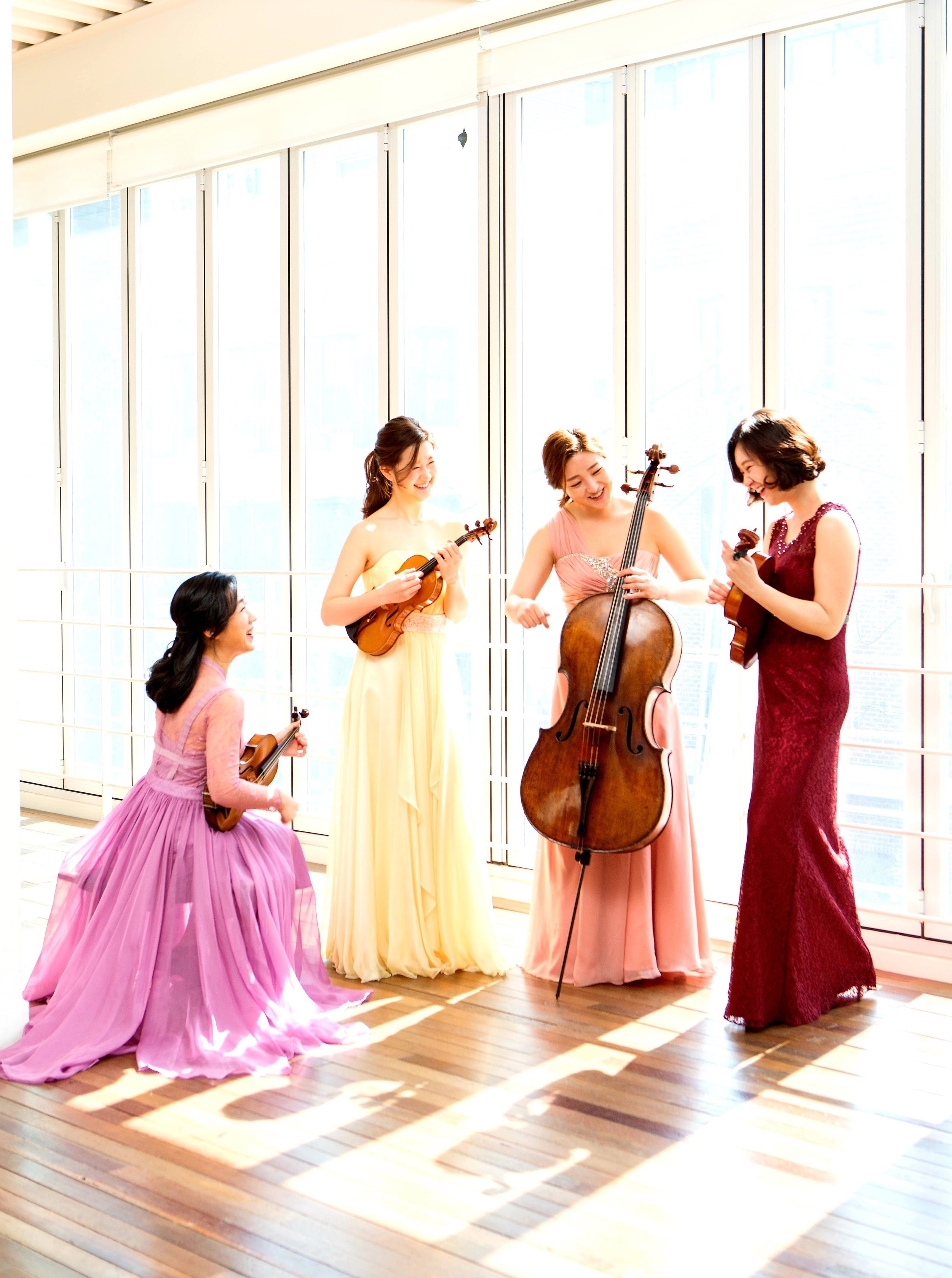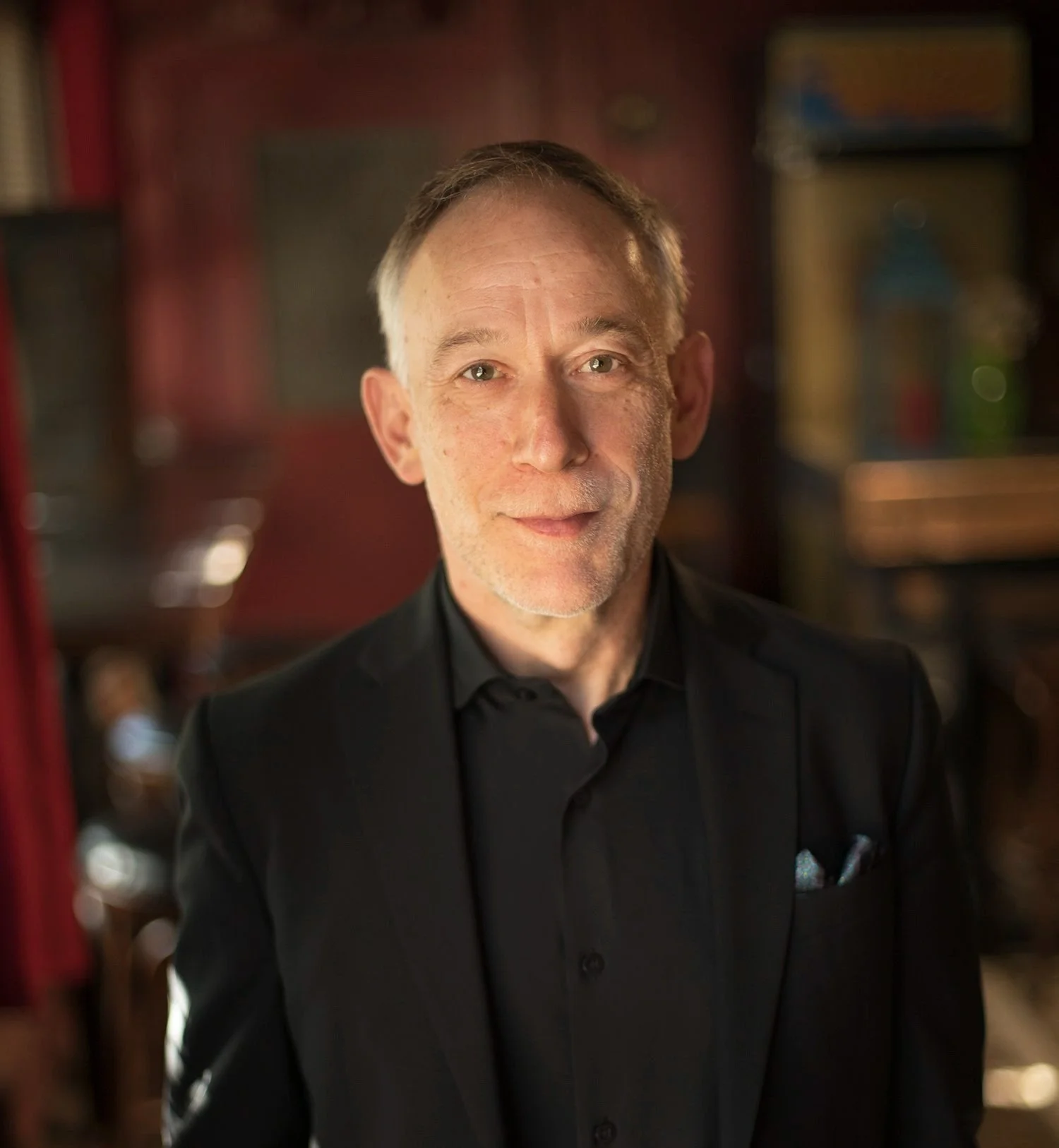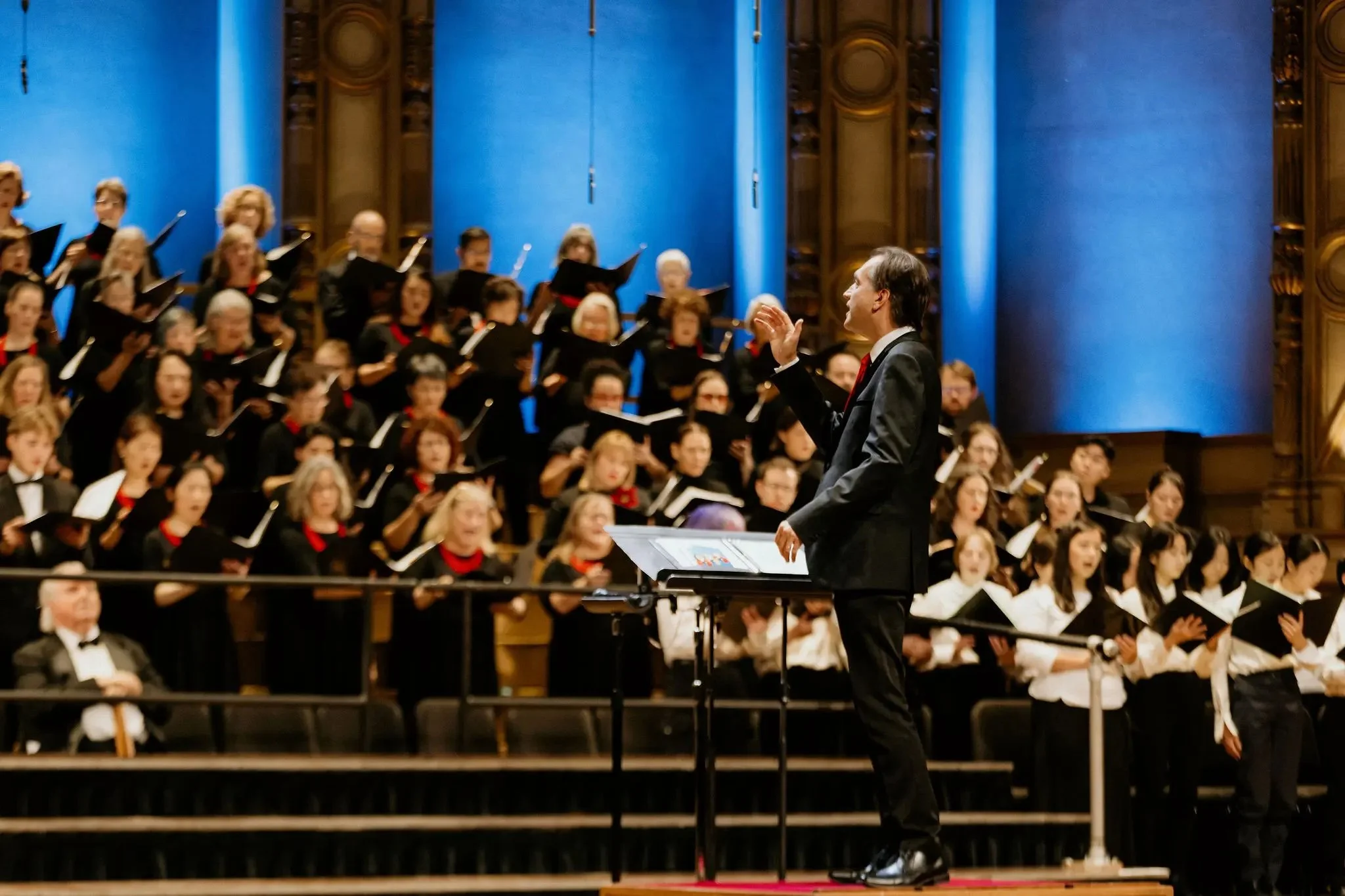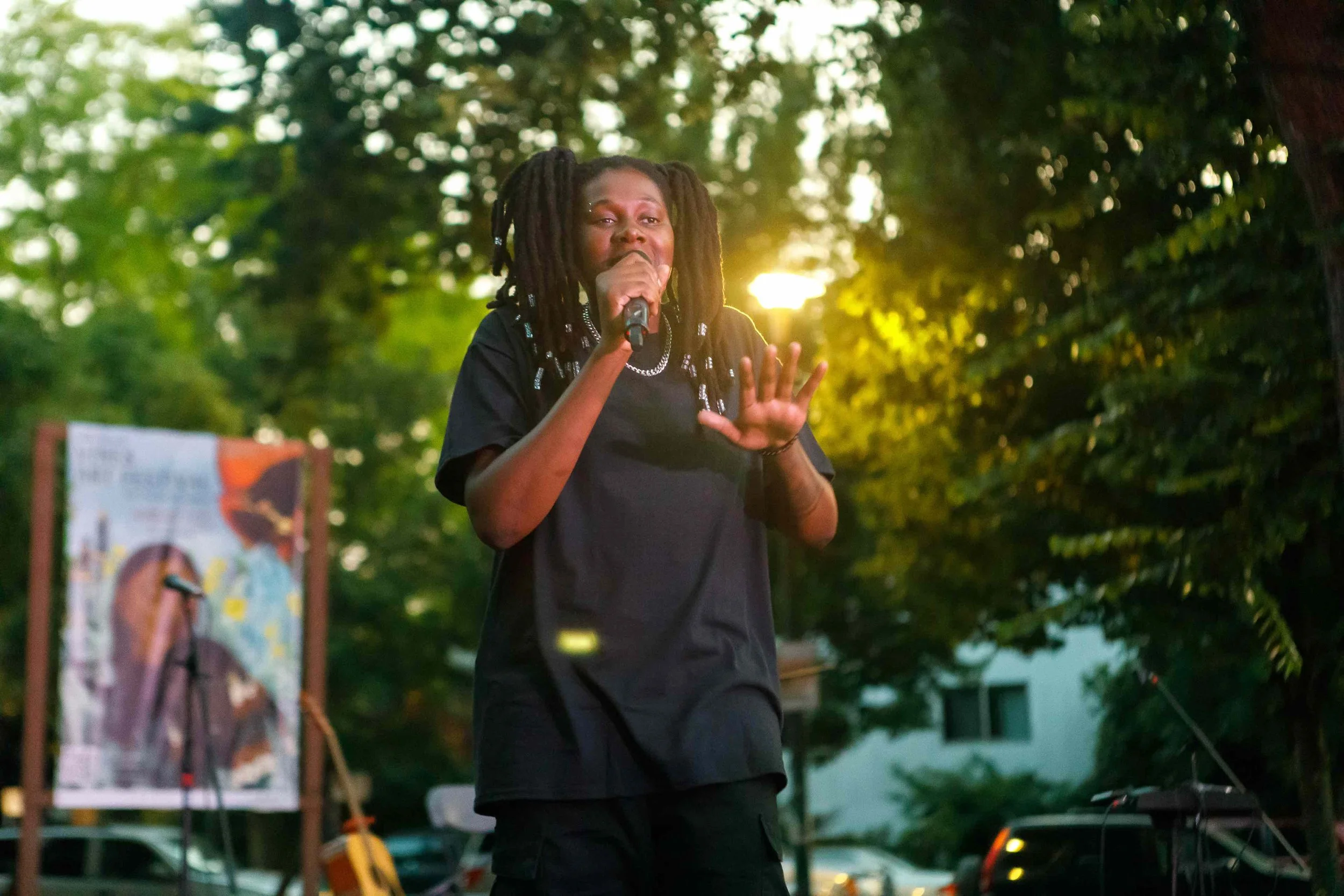Esmé Quartet creates characters and tells stories through strings
The Korean-born musicians of the German-based ensemble inject fresh energy into chamber music
Esmé Quaret’s Wonhee Bae, Jiwon Kim, Yeeun Heo, and Yuna Ha. Photo by Sihoo Kim Photography
Friends of Chamber Music presents Esmé Quartet on March 22 at 7:30 pm at the Vancouver Playhouse
GROWING UP IN South Korea, Wonhee Bae, Yuna Ha, Jiwon Kim, and Yeeun Heo loved Western classical music, an increasingly popular genre there. When the four met at Germany’s Cologne University, they discovered this shared passion, a team project ultimately turning into the formation of Esmé Quartet, a rising star in chamber music the world over that will soon make its Vancouver debut.
“In South Korea, classical music is a fascination,” Bae, first violinist, tells Stir. “Concerts are very well-attended, especially by young audiences. The history in which classical music was introduced to Korea is rather short, and perhaps it is perceived as something classy yet romantic.
“We all love of course string quartet in particular,” she says. “When I studied in London, I would go to Wigmore Hall to hear Belcea Quartet perform, and I realized that is exactly what I wanted to do. And it became my dream, and it is my dream come true to be performing as a string-quartet player. The others started playing in string quartets back in our home country while they were studying in college, and they have always aspired to be performing in a chamber-music group. In Cologne University, we first started out as a school project team together and recognized each other’s passion for wanting to make a permanent group. Then it all began.”
That was in 2016. Based between Cologne and Düsseldorf, Esmé Quartet (with Ha on second violin, Kim on viola, and Heo on cello) shot to international attention in 2018, when it swept the London Wigmore Hall International String Quartet Competition, winning first place and four special awards, including the Mozart and Beethoven prizes. “It is the event which changed our life,” Bae says, “and we all became committed string quartet performers.”
Since then, the quartet—which derives its name from an old French term meaning “being loved”—has performed at such high-profile events and venues such as Lucerne Festival in Switzerland, the Flagey Musiq3 Festival in Brussels, Auditori di Barcelona, Opéra de Lille, and Heidelberg String Quartet Festival, to name just a few. They were named the 2018 quartet in residency at Festival d’Aix-en-Provence, and, in 2020-21, became the first artists in residence at the Lotte Concert Hall in Seoul.
New York’s WQXR Radio named their debut CD (with works by Beethoven, Unsuk Chin, and Frank Bridge) one of the best classical albums of 2020, while Strings Magazine likened a performance to a Michelin-starred meal.
Esmé Quartet. Photo by Sihoo Kim Photography
The ensemble’s upcoming Vancouver performance is part of its first North American tour.
One of the pieces the quartet will perform is Beethoven’s String Quartet No.8 in E minor, Opus 59, No.2 “Razumovsky”. The work has special significance to the artists.
“It is the piece which we performed at the Wigmore Hall String Quartet Competition in the semi-final round, and it must be one of the most memorable moments in our quartet history, as we felt so thrilled to share this music in that special atmosphere in Wigmore Hall,” Bae says. “It is the piece which made us grow as a real string quartet.”
Also on the program is Mozart’s Quartet in D major, K. 575 “Prussian”, a real show piece for musicians. “When people think about Mozart’s string quartets, they might think that the first violin mainly has the melodies and the others have accompaniments, but Mozart composed this piece for the King of Prussia, who was an amateur cellist, so the cello has more melodies than [other works],” Bae says. “Accordingly, the other two instruments—second violin and viola—also have important roles in this piece. The four instruments share the main voices evenly, which means each of us can show our individual characters well by playing our own melodies.
“When we rehearse, we create our own stories, and for this piece too, we made our own story and created the characters,” she adds. “If you listen to our music, you can feel like the four characters are singing as if you were watching an opera.”
Rounding out the program is Debussy’s String Quartet in G minor, Opus 10. Bae describes the piece as a departure of sorts for the composer. “It seems that Debussy was inspired more from visual artwork and not only from Oriental music,” Bae says. “I think he took the colours and scents of Oriental arts, including music, and made a nice mixture of his own style. We can listen to his original way of writing with impressionistic, romantic, and a bit of Oriental spice in its harmony. But his string quartet actually represents a more symphonic side of music rather than real impressionism. The second movement, with the pizzicatos—which incidentally inspired Ravel’s own singular string quartet—is a great joy and fun to play.”
As Esmé Quartet travels the globe injecting fresh energy into classic compositions, Bae still marvels at being able to live her dream—even if there are occasional stereotypes to be broken along the way.
“There are challenges outside of music that we have had to be faced with,” she says. “Since we first started playing together and even to this day, many people have asked us how we see our group staying together when we will have to make a family, being four women. We always answer by questioning why that has to be any challenge for us just because we are four women. But we enjoy it so much that even to overcome some of the difficulties becomes fun for us.”
More information is at Friends of Chamber Music.
For more information, see https://vettamusic.com.














